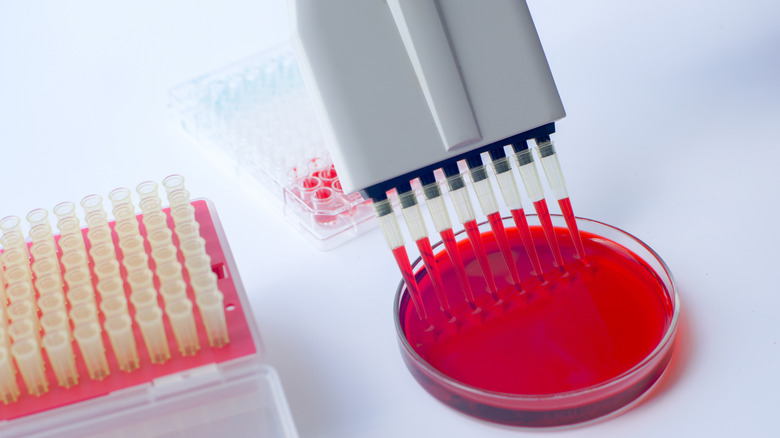Researchers May Have Found The Reason COVID-19 Triggers Clotting Issues In Some Patients
While symptoms of COVID-19 generally resolve within a few weeks' time, some people experience symptoms that persist even after having recovered (via Mayo Clinic). Such long-lasting symptoms can include loss of taste or smell, cough, joint pain, chest pain, fatigue, an accelerated heart rate, or breathing difficulties, among others. In some cases, COVID-19 can also increase the likelihood of blood clots.
Blood clotting is the coagulation of blood into a gel-like consistency in order to stop bleeding from damaged blood vessels, according to the American Society of Hematology. While blood clotting is a necessary protective function of the body, clots that develop in the veins or arteries can be fatal.
Whether through vaccination or due to a previous infection, COVID-19 antibodies work by enabling the immune system to fight off viral infection (via CDC). Now, a new study of over 240 COVID-19 hospitalized patients reveals the presence of autoantibodies in their blood (via HealthDay). Unlike antibodies, autoantibodies act in reverse by directly attacking the body as opposed to the virus. These findings have given researchers insight as to the potential link between clotting issues and cases of COVID-19.
The effect of autoantibodies on blood clotting
Published in the scientific journal Arthritis & Rheumatology, researchers discovered the presence of Immunoglobulin G (IgG) antibodies in COVID-19 patient blood samples at increased levels compared to those who had not contracted the virus (via HealthDay). Researchers also found a positive correlation between levels of IgG and the severity of COVID-19 symptoms.
Researchers then examined how IgG specifically affected blood clotting. When removed from the blood samples, the absence of IgG reduced the "stickiness" of blood vessels, explained HealthDay. Conversely, when added to the blood samples of COVID-19-free patients, chances of blood clotting and "stickiness" were increased.
Researchers believe these findings to be significant as it pertains to the importance of early intervention strategies. Though additional research is still needed, by screening for autoantibody detection at the onset of COVID-19 infection, researchers believe healthcare professionals could better determine who is high-risk for blood clots and offer treatment to better protect blood vessels.


